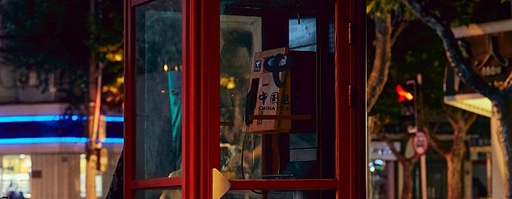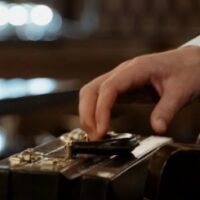I think I might have have managed to hide my considerable surprise under, “What?”
Some of my confusion must have poked out, causing Balaclava to smile with the boldness of his plan. “Lanzo,” he leaned forward with the name, grinning as if all of the violence between us, real and implied, had just been a jostling among brothers. “The Corsican you beat on at the casino. He was there bothering the Russian because he had met his girl the other night. She got out a bunch of nights in a row. They saw each other.” He clasped his hands over his heart and swooned backward, crowing cynically, “They fell in love.”
Just like that, this idiot provided a huge chunk of the answers I had been scratching around for. And still, I felt like I was having a hard time keeping up.
While Balaclava and his friends chuckled at his play-acting, a part of me tried to do the math: How many people was he betraying by doing this? How many lives would it end or ruin? For a second, I regretted not killing him in the cafe. But that would have created a mess for Simon, so I put that aside with, “You’re going to kidnap her?”
“The Russian forbids her to see Lanzo. But if she thinks it is for Lanzo, she will come to us.” He stepped back, opening his arms to backwardly gesture to his two friends. “Then we keep her away for a time until the Russian gives up money.”
I thought about this and how it might sound like a good plan to anyone who didn’t know much about Mitnick. These guys didn’t even know he wasn’t actually Russian. “And you need Sartre for – ?”
Balaclava shrugged. “We don’t need him.” Scratching his nose, he seemed to be acquiescing to the realities of the world. “But he might be upset if we did not involve him.” I had to give him credit for that – Sartre would almost assuredly be pissed if someone tried to pull this kind of thing off and he wasn’t notified in advance. That isn’t the only thing they’d need Sartre for, though. Somewhere in the back of my head I felt a faint, brief pulse, an idea trying to take shape.
It started with a question. “What about your friend? He was screaming “je l’aime” the other night. Doesn’t that mean something?”
Balaclava shrugged, breaking eye contact to stare down the avenue. “Once he sees the money, he will come around.” Another shrug, trying hard to prove his indifference.
I stared at him, trying to figure out who he thought he was fooling. With nowhere else to go, I gave a despicable laugh to cover my anger. “Of course he will.” I tried my hand at translating a bit of American slang into French, “Les gars avant les poulettes?” I laughed again, almost sounding natural. Balaclava began to chuckle as well, relaxing a bit, as if my words acted as some kind of absolution. I was glad he couldn’t see the judgement in my heart: He wasn’t any better than then men who ran that henhouse. He might feel a bit bad about what he was doing to his friend, but he was still callously using people to better his shitty life.
With him put off-balance by guilt and uncertainty I gave him a push with, “The girl we’re talking about – her name is Nika?”
It was Balaclava’s turn to be surprised. To my satisfaction he didn’t hide it very well. “Oui – how did you know that?”
I didn’t answer that, instead shifting my eyes around, scanning the area as if I were suddenly concerned about eavesdroppers. “And when you met her at the Factory, she was with a man? Named Sergei?”
Balaclava only nodded, his surprise morphing into suspicion, his eyes following my own, wondering what else he wasn’t seeing. “Then you’re going to need Sartre for more than permission.”
“What do you mean?”
“You’re going to need him for protection.” I stared blankly at him, as if delivering old news. “Sergei’s dead. Mitnick killed him.”
Balaclava stared at me in astonishment for a moment, then something a bit like regret came into his eyes. “Ah, damn. He was cool.”
“And now he’s dead.” Saves you a step, I thought. If Mitnick had let the girl out, Sergei might have come with her. “If Mitnick was willing to kill him for letting the girl off her leash, what do you think he’ll do to you?”
He nodded, his dangerous ignorance of Mitnick slightly diminished. “Oui oui, c’est ca.”
“So you’ll need Sartre to hide you away from him, keep all the right people with their mouths closed.” I took measurement of the situation by placing a hand on Balaclava’s shoulder, restraining the urge to crush it. He didn’t flinch or withdraw, more comfortable with physical contact than any American. “I’ll talk to him for you.” I shrugged without taking my hand off him, “He might have some good advice.”
Balaclava nodded in a distant way, perhaps trying to process that there was no longer a Sergei or that Mitnick wasn’t just some rich Russian beach trash. My positive reply, though, made its way through the noise of his thoughts and his nodding became more enthusiastic. He rubbed his chin and straightened himself out. The Algerian and Fatty shuffled a bit, feeling the tension pass. Uncertain of how I was going to get in touch with Sartre, I decided I was having enough of that problem. So I asked Balaclava, “How do I find you?”
I was certain that he, like most everyone, had a mobile phone, but after a moment of consideration he went with, “We’ll be at the Factory most nights this week. In the Abattoir, same as before. Come by and we can talk.” He said it in such a way that he might have owned the place.
“OK.” I clapped my hands on his shoulder and took it off. He offered his hand for a shake and introduced himself as Max and I pretended I didn’t know it already. I told him my name and we smiled at each other as sometimes men do after they’ve fought. It was a shame – in that moment I might’ve been able to like him if he wasn’t planning to betray a friend.
To read the next chapter, go here.
To read the previous chapter, go here.
See the author’s published work here.
Related Posts
Party Line Next Post:
Grandma’s House
























